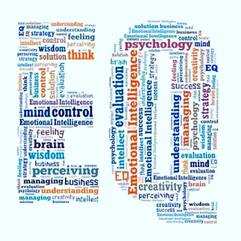A great definition of human emotions is "internal energy in motion".
0 Comments
“Persistence and resilience only come from having been given the chance to work through difficult problems.” – Gever Tulley
When we experience disaster, trauma, or distressing psychological issues, we usually react with grief and a range of negative emotions. This is, of course, a natural reaction to having our hopes dashed or our goals thwarted. However, such experiences are not only an inevitable part of life, but virtually required for growth and development. These are the exact sort of experiences that build resilience. With resilience, you can work through the effects of stress and negative emotions and not only bounce back, but actually thrive. The U.S. Department of Health and Human Services (2015) defines individual resilience as the ability to withstand, adapt to, and recover from adversity and stress. In other words, resilience can manifest as maintaining or returning to one’s original state of mental health or well-being, or reaching a more mature and well-developed state of mental health or well-being through the use of effective coping strategies. In order to grasp and effectively develop resilience, it is critical to understand the factors contributing to resilience. Components of Resilience is defined differently depending on who you ask; psychological researchers may have one working definition (or many!), while those who work directly with people who are struggling often see it differently. There is no single accepted set of components of resilience, but this set of characteristics and contributing factors can provide a useful guide:
These components are not present in each and every measure of resilience, but they form a good basis for understanding the nature and scope of resilience. (Article from https://positivepsychologyprogram.com/3-resilience-scales/) Most human beings are consciously aware of about 12 different emotions that they experience. We actually have 34,000 available to us!
#EQ #emotional #Emotionalintelligence #Emotionalmastery #Lifecoach #elite #Humandevelopment |
ArchivesCategories |



 RSS Feed
RSS Feed